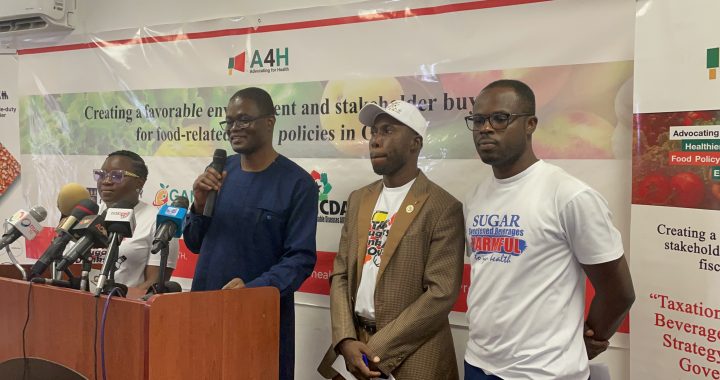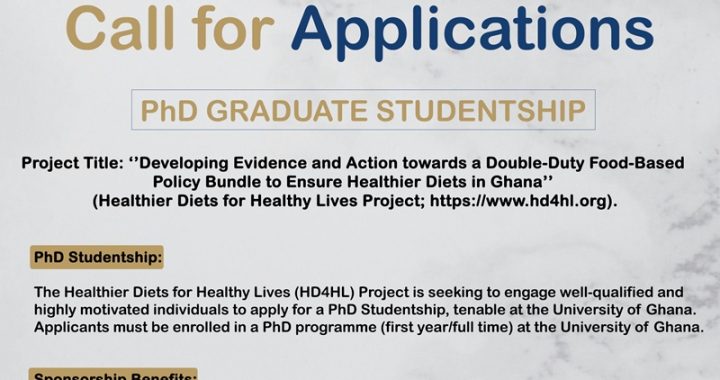During a Press Conference organized by the Advocating for Health (A4H) Coalition, led by the University of Ghana in partnership with civil society organizations, the speakers explained that the taxation of sugar-sweetened beverages (SSBs) is a “win-win-win strategy for public health, Government revenue, and health equity.”
Prof. Amos Laar, Leader of the Coalition indicated that SSBs’ contribution to overweight, obesity, dental caries, and other diet-related non-communicable diseases, and thus healthcare cost is undisputed.
He noted that while the true cost (true economic and health costs) of SSBs are yet to be estimated, whenever it is estimated it will be very huge. He referred to the work done by a team of Ghanaian researchers who recently estimated the direct healthcare costs associated with obesity in the older adult Ghanaian population.
The researchers reported that 60% of the average total cost per person expended in 2014/2015 was borne by the National Health Insurance Scheme (NHIS). Extrapolating their estimates to the entire older adult Ghanaian population (aged 50+ years), the total direct healthcare cost burden for overweight and obesity was $121 million.
This implies that the Government of Ghana is paying for these preventable, expensive health conditions when lives and money could be saved with preventive policies such as SSBs, tobacco and alcohol taxes.
The Coalition explains that the WHO has issued a number of policy strategies named the Best Buys that could help prevent overweight and obesity in Ghana. The taxation of SSBs was one such policy and has been implemented in many countries including South Africa and Nigeria. The Coalition explained that if these countries have done it, why can’t Ghana do it?
The Coalition further explained that the taxation of SSBs in Ghana is supported by many Ghanaians who are concerned about their health. Data from a survey conducted by the Coalition, which involved 7,794 residents from all 16 regions of Ghana showed that a significant number of Ghanaians (84.3%) were concerned about obesity and NCDs (in adults and children).
Two out of three respondents (68%) expressed support for any governmental effort to impose taxes on SSBs or any other food deemed to be harmful to health. If the revenue from the taxes would be used to support public health interventions, support for the tax increased to nearly 80%.
Source: Silver Nanema




